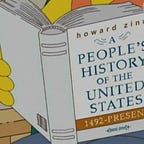Open Veins of Latin America by Eduardo Galeano
Eduardo Galeano really knew his onions when it came to writing. I’ve not read many books that manage to be so non-fictiony yet so beautiful. He retells history, amplifying the voices of the often ignored voices of the downtrodden. The spirit of Chile in the time of Salvador Allende shines through the pages and although that particular dream was squashed in a gristly manner, its influence can be found in Venezuela, Bolivia, Peru?? and many others. The United States has the most blatant boundary issues ever and people around the world are educated and radicalised through interactions with the U S of A. Galeano’s exquisite text highlights how many things change but equally many don’t. Piecing together the past helps us to work out how we arrived where we are and I think this is useful to anyone looking to build a better world, as social justice comes from solid facts.
Galeano also gives examples of how some forms of justice have been achieved in the past in the forms of Bolivar, Zapata and many others along with their movements which inspired radical change throughout Latin America. This is fascinating and also useful when looking to understand what can be built on to move forward. I always wondered why big, powerful countries had such an interest in the “poor” places, but it eventually became apparent that countries like Brazil, Chile and Haiti are actually incredibly rich. Copper, coffee, oil and many other valuable commodities were in abundance when the cesspit of Europe realised a need to expand into new markets both at home and abroad by extracting resources from further afield to offer material improvement to the quality of life at home at the expense of the exploited country. Open Veins offers a human history of political economy and importantly it highlights that “underdevelopment” isn’t a stage in their existence, but rather a consequence imposed by a system that will always prioritise money over the many. I couldn't possibly condense what this means into an adequate explanation, but that’s why this book is so important to me. It makes what appears complicated much simpler and exposes the harsh realities of capitalist expansion, its functions and its limits.
Populus countries without the industrial capacity seen in the global North have become a supply for cheap labour and this is crucial to being absorbed into the system. Actually “absorbed” is way too passive. Powerful nations force the integration, destroying independence and making nations dependent on support from elsewhere. This apparent support is intended to serve international capital by denying rights to workers and discouraging state intervention unless it is to prop up private monopolies. Through this process, wealth is concentrated and poverty is spread. Financial aid given is never done in goodwill, it is an investment in which profit goes abroad. A country that sells lots of sugar but then imports sweets will end up losing out as the sweets will be bought at a much higher price than the sugar due to the labour and surplus value built into the price. I am not a wordsmith but Eduardo Galeano was and knew much more than me so put all of this across in a much more compelling and eloquent manner. I feel like my waffling has painted a somewhat bleak picture but there is hope to be found, the dire conditions are imposed but are not destiny. There is potential for greater unity with the mass of the poor in every country having more in common with each other than the rich in their own countries.
